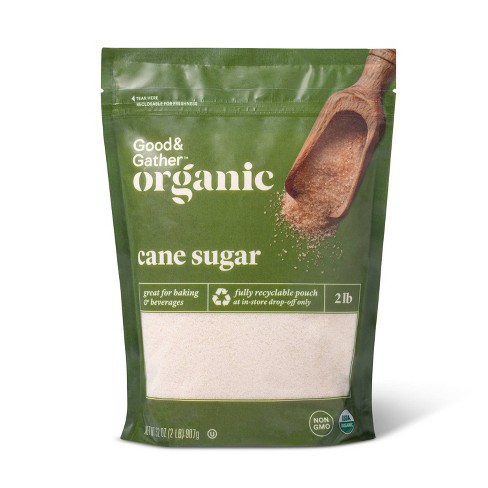The Environmental Impact of Growing Sugar and Cane in Various Regions
The Environmental Impact of Growing Sugar and Cane in Various Regions
Blog Article
Why Walking Cane Sugar Processing Chemicals Are Important for Modern Sugar Refining
The role of cane sugar handling chemicals in contemporary sugar refining can not be overstated, as they are important to enhancing both the effectiveness of removal and the total quality of the final item. Agents such as phosphoric acid and specific flocculants are utilized to eliminate pollutants, leading to sugar that not only meets consumer assumptions yet also sticks to market criteria. Nevertheless, the implications of these chemicals prolong beyond top quality, discussing market dynamics and environmental factors to consider. This increases essential inquiries concerning the sustainability of such techniques and their effect on the future of sugar manufacturing.
Role of Handling Chemicals
The efficiency of walking stick sugar handling pivots substantially on the strategic application of handling chemicals. These chemicals play an essential role in improving the effectiveness and quality of sugar removal and refining. From the initial phases of juice removal to the final purification actions, handling chemicals promote numerous crucial procedures.
In the removal stage, chemicals such as phosphoric acid and calcium hydroxide are employed to maximize the information procedure, aiding to remove contaminations and suspended solids from the cane juice. This not just boosts the yield but additionally makes sure the quality of the end product. Furthermore, agents like flocculants aid in the fast settling of pollutants, thereby streamlining the total process.
As the handling developments, chemicals are utilized in decolorization and formation phases. Activated carbon and ion exchange resins offer to get rid of color and smell, ensuring that the polished sugar satisfies consumer high quality requirements. Inevitably, the function of handling chemicals expands beyond functional effectiveness; they substantially influence the sensory features of the final item, contributing to market competition. Therefore, the meticulous selection and application of these chemicals are important for achieving optimal outcomes in walking stick sugar handling.
Key Sorts Of Chemicals
Walking cane sugar processing relies upon a range of vital chemicals that promote each stage of manufacturing. These chemicals play essential functions in clarifying, whitening, and purifying the sugar extracted from cane.
One primary group of chemicals includes flocculants, such as polyacrylamide, which aid in the information process by promoting the gathering and settling of impurities. In addition, calcium hydroxide is frequently utilized to reduce the effects of acidity and assist in the removal of non-sugar elements.
Bleaching agents, such as activated carbon and sulfur dioxide, are used to decolorize the syrup, resulting in a clearer final product. These chemicals help eliminate color compounds that may affect the sugar's look and marketability.
Additionally, phosphoric acid functions as a pH regulator during the handling stages, making sure optimum problems for the enzymatic tasks associated with sugar removal and filtration.
Other vital agents include edta (ethylenediaminetetraacetic acid), which chelates steel ions that might catalyze unfavorable reactions, and sodium hydroxide, which helps in pH control throughout the refining process. Jointly, these chemicals improve effectiveness and guarantee a top quality walking cane sugar product.
Advantages for Sugar High Quality
Typically neglected, using certain processing chemicals dramatically enhances the overall top quality of cane sugar. These chemicals play a pivotal role in refining procedures, making sure that the last item satisfies rigorous industry standards for purity and preference.

In addition, refining chemicals assist in achieving a constant granulation and structure, which are essential for customer approval. By managing the formation process, these chemicals guarantee that the sugar crystals create uniformly, causing a much more attractive product that liquifies well in different applications.
Moreover, making use of these chemicals can improve the service life of walking cane sugar by decreasing moisture absorption and microbial development. In general, the strategic application of handling chemicals is vital for providing premium cane sugar that fulfills consumer assumptions and sector needs.
Environmental Influence Considerations

Moreover, the energy-intensive nature of sugar refining, intensified by chemical usage, usually leads to enhanced carbon emissions. This contributes to climate change and raises issues relating to the sustainability of present refining techniques. In addition, the sourcing of these chemicals might entail techniques that threaten you can try this out biodiversity, such as monoculture farming, which decreases the durability of agricultural ecological communities.

To reduce these impacts, sugar refiners are progressively checking out sustainable choices and taking on finest techniques that decrease chemical use. Carrying out rigorous ecological monitoring systems can aid ensure that the refining process aligns with ecological requirements and advertises biodiversity. Inevitably, a well balanced technique that prioritizes both sugar quality and environmental stewardship is necessary for the long-lasting viability of the sugar market.
Future Trends in Refining
As the sugar sector comes to grips with the ecological challenges connected with conventional refining approaches, ingenious approaches are emerging to boost both effectiveness and sustainability. One substantial trend is the fostering of environment-friendly chemistry concepts, which focus on the usage of non-toxic, naturally degradable handling chemicals. This change not just lessens environmental influence but additionally addresses consumer demand for cleaner manufacturing approaches.
One more encouraging development is the execution of advanced filtration modern technologies, such as membrane splitting up and adsorption procedures. These methods improve the clearness and quality of the sugar while minimizing the quantity of wastewater generated during refining. Furthermore, the assimilation of digital innovations, consisting of IoT and AI, is transforming operational effectiveness by making it possible for real-time monitoring and anticipating upkeep, hence lessening resource waste.
Additionally, the usage of by-products from sugar refining, such as bagasse and molasses, is acquiring grip. These products can be exchanged biofuels or value-added items, adding to a circular economic situation within the sector. Collectively, these trends signal a shift in the direction of more lasting techniques that not just boost functional efficiency but likewise straighten with global sustainability goals, making certain the future viability of sugar refining.
Final Thought
Walking stick sugar handling chemicals are crucial in modern-day sugar refining, significantly enhancing the performance and quality of sugar extraction. The calculated use of these chemicals not only enhances the pureness and taste of the end product however likewise guarantees consistent formation and structure. As the industry progressively prioritizes sustainability, the fostering of environmentally-friendly processing agents is most likely to shape future patterns in refining, ultimately bring about greater quality products and extended life span for customers.

Inevitably, a balanced strategy that prioritizes both sugar quality and ecological stewardship is vital for the lasting feasibility of the sugar sector.
Cane sugar processing chemicals are vital in modern-day sugar refining, significantly boosting the efficiency and top quality of sugar extraction.
Report this page